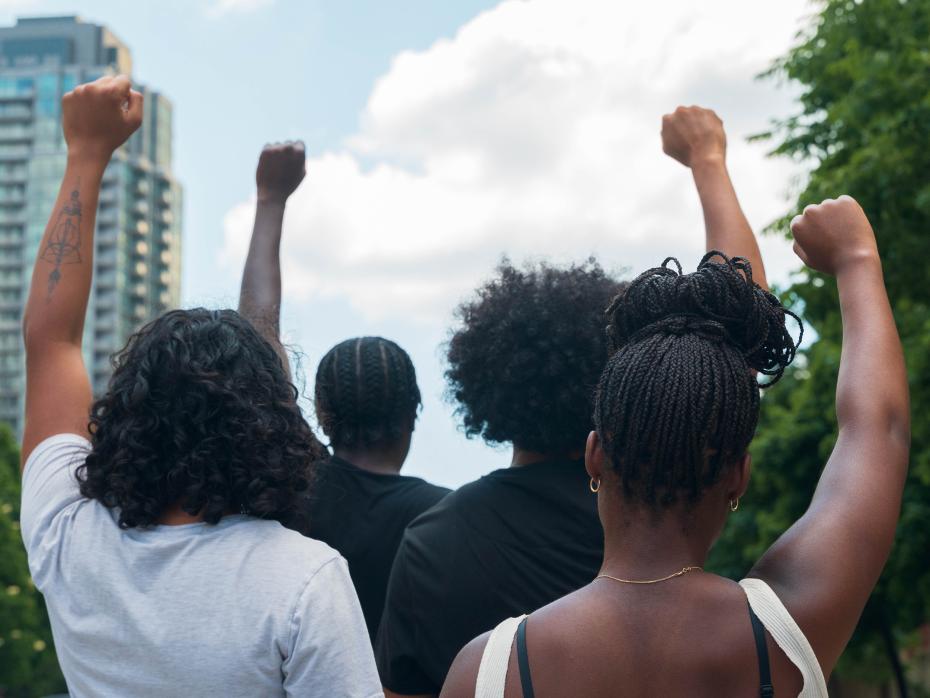In the months since October 2023, Jewish communities in Britain have endured an unprecedented surge in antisemitism: online molestation, verbal assault and physical attacks, among other forms of abuse. Fury over the war in Gaza resulted in 36 student encampments, comprising pro-Palestinian protesters, occupying university green spaces this spring from Edinburgh to Leeds, London to Bristol.
Jewish students and staff have experienced hostility and intimidation and expressed feelings of anger and hurt at the absence of a “balanced” response which takes account of both Israeli and Palestinian suffering resulting from the events of October 7th and its aftermath.
Equally, many anti-war activists on campus have struggled in good faith to understand the relationship between anti-Zionism and antisemitism, expressing a wish to criticise Israel’s actions but lacking the tools or historical grounding to do so with the necessary nuance.
Fear of antisemitism allegations, and sensitivity of Holocaust memory and of Jewish insecurity more broadly, can be, and have been, used to shut down legitimate pedagogical conversations before they have begun.
The proposal for a British Jewish History Month, debated in the House of Commons in January, may offer an antidote to this troubling, divisive climate. Brought by Conservative MP Nickie Aiken and endorsed by more than 40 MPs from across Parliament, the debate highlighted the rich seam of Jewish life in Britain since Jewish readmittance under Oliver Cromwell. As growing levels of engagement with Black History Month since its inception in the late 1980s suggests, history education, when done well, can be a bridge towards greater understanding, tolerance and respect.
How to teach Jewish history
Don’t be under any illusions. Jewish history is chronologically vast and geographically expansive, spanning millennia and virtually every continent. But herein lies an opportunity for every educator.
Consider the nature and character of the Jewish presence in any given context; in the sphere of labour and the economy, spatially and geographically as minoritised groups, migrants and urban dwellers, as political subjects and objects, as a religious and political cipher, as both “product” and producer within the cultural realm. Capitalising upon the interdisciplinarity of Jewish Studies means that virtually all disciplines can benefit, albeit without the need for an overhaul of programmes or modules.
Take, for example, how a historian might approach this: the British Jewish experience itself is richly diverse. Jewish life since Roman times can be mapped to all corners of the British Isles, and charts the full schema of Jewish religious, ethnic and cultural life. It is often intertwined with the stories of other communities in the UK and, indeed, thanks to the Jewish diaspora, to other parts of the world. Hence, modules on British, trans-national and global history can draw attention to Jewish presence and realms of experience, utilising this as a means to nuance and diversify social, cultural and political themes and frames of analysis.
From this, we learn that Jewish history should be treated as more than a mere adjunct to “mainstream” histories and rather as an integral part of local, national and global pasts.
- Resources for higher education professionals on race and ethnicity
- Tackling bias and microaggressions in higher education
- A practical guide to navigating the language of diversity
Go beyond the Holocaust
Since the mandating of Holocaust education within the history curriculum in 1991, all pupils in England and Wales will have been exposed to an aspect of Jewish history. However, the tendency to teach the Holocaust with virtually no contextual reference points, such as the emergence of modern antisemitism as a component of 19th-century scientific racism, to racist thought and ideology in nation-states and colonial systems concurrent with the rise of fascism and to the modern history of Jewish bloodletting outside of the “German case”, means pupils emerge with a strangely abstract notion of Jewish persecution as a singular, historical and distinctly “German” phenomenon.
Equally, Jews themselves appear only as “victims”, as passive actors within a hostile regime, which, in turn, serves to reduce the modern Jewish past to a mere atrocity paradigm.
A more nuanced approach might be to teach the schema of global racisms from the Early Modern period onwards, in which Judaeo-phobia (later, “antisemitism”) is one distinctive and virulent strand. Another could be to stress the international context for and legacies of the Holocaust; a genocide that germinated over long duration and within the political consciousness of a variety of nation-states.
Be sensitive and creative if teaching about Israel and Palestine
Teaching the history of Israel and Palestine is never easy, but following certain principles can help to anticipate and de-escalate classroom tensions.
First, take a long view, explaining the history of Jews and Arabs in the region before and beyond the modern-day conflict.
Tap into cultural anchors such as food or music to unlock stories about identity, belonging and shared histories. This cultural lens might, in time, enable you to address more fraught topics with sensitivity.
Create a balanced curriculum, making space for both Palestinian and Israeli voices. Think about and acknowledge your own positionality within this history and encourage students to share theirs if they feel comfortable doing so.
There are some excellent resources that can support curriculum development such as Teaching the Arab-Israeli Conflict, edited by Rachel S. Harris. But it is important to bear in mind that the North American context where this volume was conceived is very different from the UK context. Also the post-7 October landscape has altered, in some cases quite radically, the preconceptions and perspectives that students and educators bring to this history. So, handle with care.
Understanding the Jewish past in ways that goes beyond the obvious, superficial or tokenistic can help to heal wounds as well as build resilient communities of tolerance and allyship.
Hannah Ewence is the head of humanities, cultures and environment at the University of Chester.
If you would like advice and insight from academics and university staff delivered directly to your inbox each week, sign up for the Campus newsletter.




comment